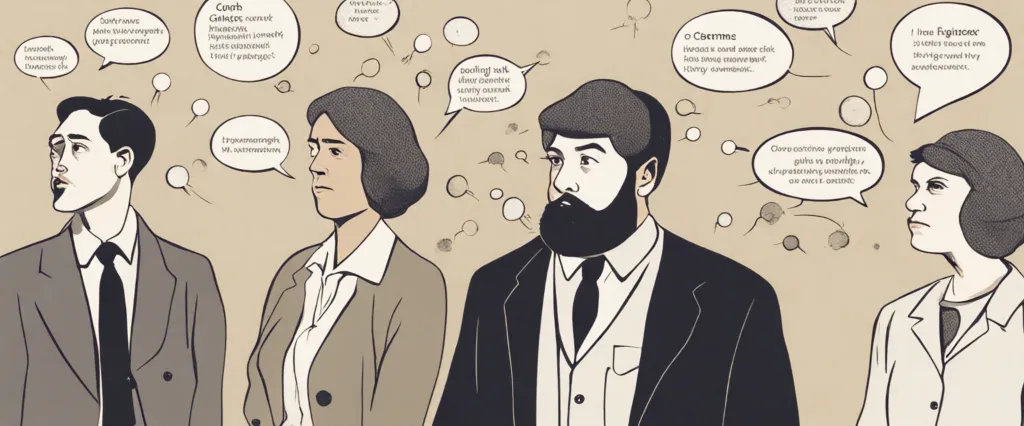——Watching the English by Kate Fox & 1453 by Roger Crowley

In the realm of literary exploration, books not only entertain and captivate readers but also offer profound insights into the human experience, culture, and history. Within this vast realm, two remarkable works stand out, “Watching the English” by Kate Fox and “1453” by Roger Crowley. While seemingly disparate in subject matter, these two books share a common thread of exploration and analysis, albeit in different time periods and contexts.
Kate Fox’s “Watching the English” takes readers on a unique journey into the heart of English culture, dissecting the idiosyncrasies and unwritten rules that govern the English society. As an anthropological study, Fox delves into the unspoken codes of behavior, social norms, and rituals that define what it means to be English. With wit and keen observation, she unravels the complex layers that lie beneath seemingly everyday interactions and highlights the peculiarities that set the English apart.
On the other hand, Roger Crowley’s “1453” plunges readers into a pivotal moment in history – the famed fall of Constantinople to the Ottoman Empire. Through meticulous research and gripping storytelling, Crowley brings to life the events leading up to and ultimate fall of this great city, weaving a vivid tapestry of conquest, religious conflict, and political upheaval. By delving into the details of this seminal event, Crowley skillfully explores the clash of civilizations, the rise and fall of empires, and the unparalleled impact it had on shaping the European and Middle Eastern landscapes.
Despite their differing subjects, Fox and Crowley’s works share a common purpose – to shed light on the intricacies of human societies, be it the contemporary English culture or the historical context of medieval Constantinople. Both authors employ meticulous research, personal anecdotes, and academic analysis to provide readers with a comprehensive understanding of their respective subjects.
As we embark on a comparative study of “Watching the English” and “1453,” we will explore the similarities and differences between these two works, and how they contribute to our understanding of human behavior, societal dynamics, and the lasting impact of culture and history. By examining these books side by side, we hope to unravel the intricacies of English society and the seismic historical events surrounding the fall of Constantinople, thereby illuminating the universal truths that underpin the human experience.
Brief Summary of Two Books
Watching the English by Kate Fox
Watching the English” by Kate Fox is an anthropological study that explores the unique habits, customs, and behaviors of the English people. The author, who is also a social anthropologist, provides a witty and satirical analysis of the English society, examining everything from their love for queuing, their obsession with self-deprecation, their intricate class system, and their love of gardens and tea.
The book delves into the unwritten rules that govern social interaction in England, such as the concept of “Englishness” and the “rules of English politeness.” Fox provides numerous humorous anecdotes and observations gained from her extensive research and personal experiences, helping the reader understand the quirks and idiosyncrasies of the English people.
Throughout the book, Fox also explores various topics such as the English sense of humor, social taboos, their relationship with alcohol, and their reluctance to discuss personal emotions. She analyzes the different regional identities within England, along with the impact of historical events and cultural influences on English behavior.
Despite its amusing tone, “Watching the English” also provides a deep insight into the English psyche and acts as a critique of certain aspects of English culture. It encourages readers to question the norms and values they may have taken for granted while offering an outsider’s perspective on a fascinating culture.
Overall, “Watching the English” is a humorous and insightful exploration of English culture and society, uncovering the subtle and sometimes baffling nuances that shape the English way of life.
1453 by Roger Crowley
1453″ by Roger Crowley is a historical non-fiction book that recounts the epic siege and fall of Constantinople, the capital of the Byzantine Empire, to the Ottoman Turks. The book sets the stage by painting a vivid picture of the city’s grandeur, its strategic importance, and the intricate web of alliances and rivalries between the Byzantine Empire and its neighbors.
Crowley then delves into the rise of the Ottoman Empire under the leadership of Sultan Mehmed II, or Mehmed the Conqueror, who aims to bring Constantinople under Islamic rule. With meticulous research and vivid storytelling, Crowley describes the preparations made by both sides in anticipation of the monumental battle that would determine the fate of an empire and change the course of history.
The author explores the military strategies, technologies, and obstacles faced by each side during the siege. Mehmed II’s forces faced formidable defenses, including the ancient and renowned Theodosian Walls, along with the determination of the Byzantine defenders. The book portrays the bravery and desperation of the Byzantine soldiers and civilians, led by Emperor Constantine XI, as they fought to defend their city against overwhelming odds.
As the siege progresses, Crowley captures the tense and sometimes brutal moments of warfare, including naval skirmishes, artillery bombardments, and daring attempts to breach the city’s defenses. He also highlights the dramatic human stories of individuals caught up in the conflict, from soldiers and generals to ordinary citizens.
Ultimately, “1453” culminates in the climactic battle for Constantinople on May 29, 1453, which resulted in the fall of the Byzantine Empire and the end of the Byzantine era. Crowley illuminates the immediate aftermath of the siege, discussing its profound impact on the Ottoman Empire, Europe, and the broader world. The author’s meticulous research, engaging writing style, and ability to bring historical events to life make “1453” a gripping account of a pivotal moment in history.
Comparison between Two Books

Similarities in Regional Culture
Both Watching the English by Kate Fox and 1453 by Roger Crowley shed light on different aspects of regional culture. While Watching the English focuses on contemporary English culture, 1453 explores the events leading up to the fall of Constantinople. Despite the differences in time and subject matter, there are several similarities in the portrayal of regional culture in these books.
1. Emphasis on Tradition: Both books highlight the significance of tradition in shaping regional culture. Kate Fox explores English traditions and social norms, such as the importance of politeness, queuing, and the pub culture. Similarly, Roger Crowley delves into the Byzantine and Ottoman traditions and customs that were prevalent in Constantinople prior to its fall. Both authors emphasize how these traditions have shaped the regional cultures and continue to influence the behavior and attitudes of the people.
2. Class and Social Hierarchy: Both books touch upon the impact of social class and hierarchy on regional culture. Fox explores the various social classes in England and how they interact with one another, while Crowley delves into the Byzantine court and the Ottoman Empire’s social structure. In both cases, the authors highlight how social status affects people’s behavior, social interactions, and decision-making processes.
3. Influence of Religion: Religion plays a significant role in both English and Byzantine culture, as depicted in the books. Fox explores the subtle influence of Anglicanism and its impact on English social values and behavior. Meanwhile, Crowley examines the centrality of Orthodox Christianity in Byzantine life and how it shaped the cultural landscape of Constantinople. The authors highlight the strong influence of religious practices, rituals, and beliefs on both societies.
4. National Identity: Both books explore the concept of national identity and its impact on regional culture. Fox examines the various stereotypes and characteristics associated with being English, such as the stiff upper lip, the love for tea, and soccer culture. Crowley, on the other hand, delves into the different communities residing in Constantinople and their contributions to the city’s multicultural identity. Both authors emphasize the importance of national identity in shaping cultural norms, values, and behaviors.
Overall, while focusing on different time periods and regions, both Watching the English and 1453 share common themes of tradition, social hierarchy, religion, and national identity as significant influences on regional cultures. These books provide valuable insights that help readers understand the complexities and nuances of different cultural landscapes.
Divergences in Regional Culture
Watching the English by Kate Fox and 1453 by Roger Crowley are both books that delve into different aspects of culture, albeit focusing on different regions and time periods. While Watching the English explores the nuances of contemporary English culture, 1453 narrates the events surrounding the fall of Constantinople and its implications on the regional culture of the Byzantine Empire. Despite the contrasting topics, it is still possible to draw a divergence about regional culture from these two books.
One significant divergence arises from the temporal aspect of the books. Watching the English examines the contemporary English culture, offering a comprehensive analysis of various social behaviors, etiquettes, and idiosyncrasies prevalent in present-day England. This allows readers to gain insights into the cultural trends and customs of the English society they might encounter today. On the other hand, 1453 delves into the tumultuous era of the 15th century and portrays the fall of Constantinople, marking the end of the Byzantine Empire. The book portrays the Byzantine culture and the pivotal moment in history that forever changed the region, resulting in the emergence of the Ottoman Empire. Therefore, while Watching the English focuses on the culture of today, 1453 highlights a historical period that influenced the future regional culture.
Another divergence lies in the scope of cultural analysis. Watching the English covers a vast array of cultural aspects, ranging from language, humor, manners, and social interactions to the English obsession with tea drinking and queues. Kate Fox thoroughly dissects these English characteristics and provides a humorous yet insightful exploration of how these behaviors shape the English culture. Conversely, 1453 narrows its focus to the historical events surrounding the siege of Constantinople. It delves into the political and military implications of the siege, such as the impact on trade routes, religion, and geopolitics, rather than extensively examining the day-to-day cultural tendencies within the Byzantine Empire.
Furthermore, Watching the English concentrates on contributing factors to the formation of contemporary English culture, such as class, regional differences, and values. Kate Fox explores how these factors shape interactions and social dynamics in English society. In contrast, 1453 tackles the significant historical event of the fall of Constantinople, which had broader repercussions on regional culture. The book delves into the synthesis of cultures and religions within the Byzantine Empire, as well as the influence of the Ottoman conquest on subsequent generations that inhabited the region.
In conclusion, while Watching the English dissects current English culture and societal norms, 1453 explores the historical events surrounding the fall of Constantinople and its impact on the regional culture of the Byzantine Empire. This divergence is mainly due to the temporal aspect, the scope of cultural analysis, and the focus on contributing factors and broader historical implications of the discussed periods. Both books provide unique insights into the cultures they explore, offering readers a deep dive into different facets of regional culture.

Conclusion
Both “Watching the English” by Kate Fox and “1453” by Roger Crowley are acclaimed books in their respective genres. The choice of which book is more worthy of reading depends on your personal interests and preferences.
If you are interested in observing and understanding English culture and society, “Watching the English” is an excellent choice. Kate Fox delves into various aspects of English life, including social customs, language, humor, and class dynamics. It provides valuable insights and a humorous perspective on English society, making it an entertaining and enlightening read.
On the other hand, if you are interested in history, particularly the siege of Constantinople in 1453, then “1453” by Roger Crowley is a compelling option. Crowley meticulously examines the events leading up to the siege and provides a detailed account of the battle itself. It offers a vivid portrayal of the ambition, bravery, and brutality of the era, making it a gripping historical narrative.
Ultimately, both books are highly regarded in their respective fields, so the decision comes down to your personal interests. If you enjoy understanding different cultures from a sociological perspective, “Watching the English” would be a great choice. If you prefer delving into historical events and are interested in the siege of Constantinople, “1453” would be the more fitting option.


